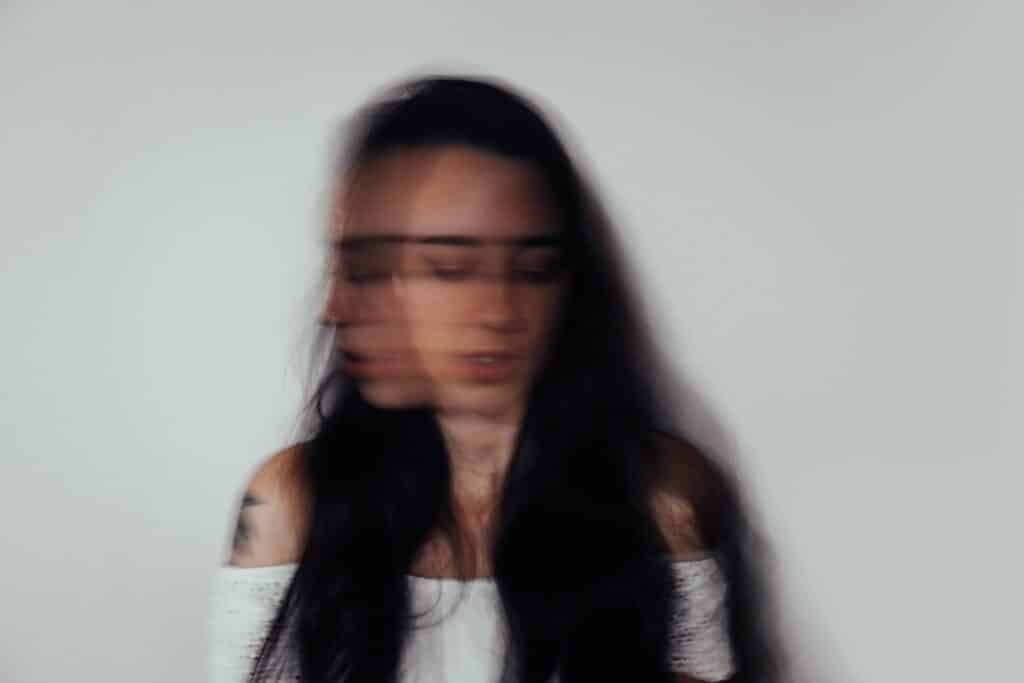Anxiety disorders are one of the most common mental health problems in the United States and there are many different signs of anxiety disorders that you can identify to better understand if you or your loved one struggle with this condition every day.
The signs of anxiety are similar in most people, although the intensity may differ from person to person. The symptoms can be crippling to a person’s life. There is a large amount of stress to cope with, as well as physical symptoms when dealing with anxiety. Some people turn to drug or alcohol use when dealing with anxiety, if this is the case, it is best to seek out the help of a professional treatment program, like our California rehab.
Need help getting addiction treatment?
Signs of Anxiety Disorder
Anxiety disorders come in many forms, and the signs and symptoms of anxiety vary depending on the condition.
The signs of high-functioning anxiety in a loved one might be tough to pick up on, so the more you learn about the different types of anxiety disorder, the better placed you will be to help them.
By contrast, the signs of social anxiety are often easier to detect, with those suffering tending to avoid certain social situations.
Of the various anxiety disorders, some of the most common include:
- GAD (generalized anxiety disorder)
- Panic disorder
- Phobia-related disorders
What are signs of anxiety, then?
Well, we’ll look briefly at each of these discrete disorders in turn so
GAD (generalized anxiety disorder)
Generalized anxiety disorder is characterized by excessive worry or anxiety occurring most days for at least six months. Fear, worry, and anxiety can cause problems at home, work, or school.
The symptoms of GAD include any of the following:
- Feeling easily fatigued
- Problems controlling worry
- Difficulty with concentration and focus
- Restlessness
- Feeling on-edge
- Irritability
- Muscle tension
- Disrupted sleep patterns

Panic Disorder
People suffering from panic disorder experience unexpected and recurring panic attacks.
A panic attack is a period of heightened fear that comes on rapidly and peaks within a few minutes. Some attacks occur randomly, while others are triggered by people, places, or things.
The signs of a panic attack include:
- Feeling out of control
- Sensing impending doom
- Shaking
- Trembling
- Shortness of breath
- Heart palpitations
- Accelerated heart rate
- Sweating
Phobia-Related Disorders
A phobia is a fear of a specific situation or object, sometimes a complete aversion to this. The fear experienced by those with phobias is typically disproportionate to the real danger at hand.
Those with phobias:
Experience immediate anxiety when confronted with the feared situation or object
Endure unexpected exposure to the feared situation or object with intense anxiety
Actively avoids the feared situation or object
There are many types of phobias.
Simple phobias or specific phobias include the fear of:
- Heights
- Flying
- Spiders
- Snakes
- Dogs
- Blood
- Receiving injections
Social anxiety disorder was formerly known as social phobia. This condition is characterized by intense fear or social situations, extending to performance situations like public speaking. Underpinning this phobia is a fear that others will negatively judge behaviors and actions. Social anxiety disorder often leads people to avoid certain social situations.
Agoraphobia involves intense fear of at least two of the following:
- Open spaces
- Enclosed spaces
- Public transportation
- Being outside of the home alone
- Standing inline
- Being in a crowd
Those with agoraphobia tend to avoid certain situations. People suffering from this condition often fear they may be unable to easily leave if symptoms of anxiety manifest. In the most severe cases of this disorder, people become entirely housebound.
Separation Anxiety Disorder
Separation anxiety is often misunderstood. This is a form of anxiety that is typically associated with children, but it can also affect adults.
If you suffer from separation anxiety, you will have a deep-seated fear of being separated from certain loved ones. Often, people with separation anxiety worry that something bad will happen to their loved one in their absence.
These feelings lead many people suffering from this condition to do all they can to avoid being separated from the person in question. Symptoms present both in the form of nightmares and physical manifestations, when separation is anticipated or actually occurs.
Now that you have an overview of the symptoms of some common forms of anxiety disorder, we will summarize these symptoms in terms of their effects on the body and mind.

Physical Signs of Anxiety
These are the main physical signs of anxiety:
- Panic attacks
- Dizziness
- Feeling light-headed
- Pins and needles
- Changes to libido
- Nausea
- Grinding teeth
- Sleep problems
- Excessive sweating
- Irregular heartbeat
- Accelerated heartbeat
- Rapid breathing
- Headaches
- Backaches
- Restlessness
Psychological Signs of Anxiety
These are the main psychological signs of anxiety:
- Thinking about bad situations in depth
- Feeling tense
- Inability to relax
- Sense of impending dread
- Low mood
- Depression
- Feeling out of touch with reality
- Worrying about anxiety itself
- Requiring reassurance from others
- Depersonalization (a form of dissociation causing you to feel disconnected from your body or mind
What Are The Signs and Symptoms Of Anxiety?
Some people may wonder if they have an anxiety disorder because they may worry a lot or because they are very fearful. However, anxiety is much more than this. Some signs of anxiety include:
- A feeling of nervousness
- Increased heart rate
- Rapid breathing
- Sweating
- Feelings of weakness
- Extreme worry that interferes with your life
- Worry that is over very insignificant things
Dealing with an anxiety disorder is difficult to deal with, but when it co-occurs with substance abuse, it compounds the situation. When anxiety takes over your life, it can lead to the misuse of drugs, prescription medication, or alcohol to numb the problems. Consequently, this act of self-medicating leads to a substance use disorder in a cyclical effect commonly referred to as substance-induced anxiety disorder.
Signs of Anxiety Attack
Anxiety attacks, also sometimes referred to as panic attacks, are instances or episodes in which an individual goes through sudden and intense fear or panic. The onset is quick and they last for generally up to a half-hour.
Anxiety attack symptoms include:
- Jolt of overwhelming panic
- Feeling of losing control
- Increased heart rate and chest pains
- Shaking and chills
- Nausea
- Feeling detached from reality
Anxiety attacks can be something that is especially worrisome. Some people who deal with these issues go unchecked and untreated for quite some time. Luckily, there are treatment options for those who are struggling with anxiety attacks and anxiety disorder in general.

Treatment For Signs Of Anxiety at Renaissance
Finding an inpatient anxiety treatment program that works to heal the root problem is essential to help with substance abuse as well. Treatment must include therapy that addresses anxiety. Also, medication-assisted treatment may be necessary for some people.
A therapist will guide you in finding the core of what is driving anxiety. Sometimes trauma is the reason people have an anxiety disorder. Solving these past problems is the first step to peace of mind.
Find help for anxiety and substance abuse at Renaissance Recovery’s California and Florida rehab programs. Our personalized treatment programs will help you find the way to healing and peace of mind.
Start the admission process today by connecting with an intake coordinator who will evaluate your situation and get you started with a treatment plan. No matter what substance you’re dealing with, our evidence-based programs will work for you.
Some of the programs that people may go through during their time in mental health treatment include cognitive behavioral therapy or dialectical behavioral therapy. Along with these, for those dealing with co-occurring mental health and addiction disorders, there are also dual diagnosis treatment options.
Don’t let drug addiction take over your joys in life. Now that you know the signs of anxiety, you can overcome the problem. Seek treatment at a quality addiction treatment center by contacting our addiction hotline today. We’ll help you find the road to healing and happiness.



